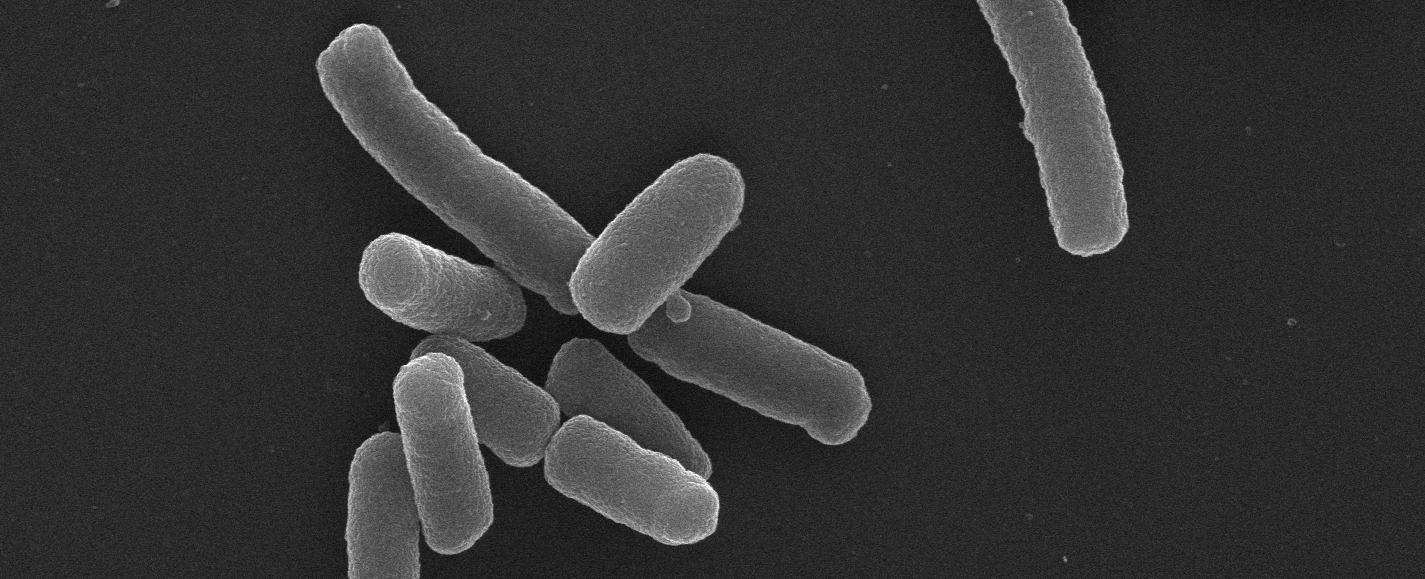New technique to speed up development of antibiotics
Leuven, 19 January - Antibiotic resistance is one of the biggest threats to public health today, making the development of new antibiotics essential. Now, the group of Jan Michiels at the VIB-KU Leuven Center for Microbiology, in collaboration with Wim Versées and Wim Vranken of the VIB-VUB Center for Structural Biology, used a novel technique called deep mutational scanning to uncover protein properties in E. coli. This can guide the development of novel antibiotics. Their work was published in Nature Communications.
Jan Michiels: “There is a pressing need for new antimicrobial therapies in the face of increasing drug resistance. Our research shows that we can estimate the likeliness of resistance development against lead compounds, which aids the much-needed development of novel antibiotics.”
Combatting antibiotic resistance
Since the discovery of penicillin by Alexander Fleming over a century ago, antibiotics have been fundamental in modern medicine, and their use has considerably lengthened the human lifespan. Antibiotics target bacterial infections by interfering with the activity of essential bacterial proteins, often killing the bacteria. However, bacteria can acquire mutations that protect them against these medicines. The result? Antibiotic resistance, harder-to-treat infections, and increased mortality rates.
Now, researchers at the VIB- KU Leuven Center for Microbiology, together with the VIB-VUB Center for Structural Biology, show that a new technique called deep mutational scanning can predict the ease of resistance development, which helps to prioritize new protein targets for antibiotics and guide drug development.

A target for E. coli
Deep mutational scanning is a powerful method to assess the function and stability of thousands of protein variants simultaneously. By using a combination of CRISPR-based editing and high-throughput DNA sequencing, the technique can analyze the functional consequences of every possible amino acid change at each position in a protein.
In their study, the scientists used this technique to study three E. coli proteins that are essential for the bacteria’s viability and have been considered attractive targets for the development of novel antibiotics. They found that one protein, MurA, had a lower chance of developing mutations, making it the superior target for antibiotics because it is less likely to develop antibiotic resistance.
Liselot Dewachter, a postdoctoral researcher at the Michiels lab and first author of the study: “I’m very proud to present this research after years of dedication. Being able to identify which protein targets have the least chance of developing resistance is a huge step forward in the development of new antibiotics. This way, the pharmaceutical industry can focus on medication that is more likely to retain its efficacy for longer.”
How can you avoid antibiotic resistance?
From https://www.who.int/news-room/fact-sheets/detail/antibiotic-resistance |
Publication
Deep mutational scanning of essential bacterial proteins can guide antibiotic development. Dewachter, et al. Nature Communications, 2023. DOI 10.1038/s41467-023-35940-3.
India Jane Wise
Joran Lauwers
About the VIB-KU Leuven Center for Microbiology
The big impact of bacteria on our health, the use of yeasts to enhance the production of chocolate, beer or bioethanol, yeast as a model system for studying human disease... these are just a few of the research areas for the scientists at the VIB-KU Leuven Center for Microbiology. Their research also has important implications in various fields of application.
About KU Leuven
KU Leuven is Europe’s most innovative university (Reuters) and ranks 45th in the Times Higher Education World University Rankings. As Belgium's largest university, KU Leuven welcomes 60,000 students from over 140 countries. Its 7,000 researchers are active in a comprehensive range of disciplines. KU Leuven is a founding member of the League of European Research Universities (LERU) and has a strong European and international orientation. University Hospitals Leuven, its network of research hospitals, provides high-quality healthcare and develops new therapeutic and diagnostic insights with an emphasis on translational research.



